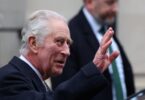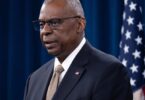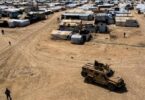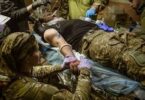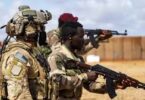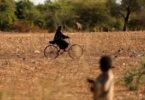Dilrukshi Handunnetti
COLOMBO: A Muslim leader in Sri Lanka slammed police “lethargy” for failing to take appropriate steps to prevent and control spiraling communal violence as the country entered its second day of state of emergency on Wednesday.
Sri Lankan authorities appeared to be in a state of panic as all schools were shut down in one deeply-affected district while a nationwide clampdown on social media was imposed.
Addressing the parliament, Sri Lanka Muslim Congress (SLMC) leader Rauff Hak-eem, who is also city planning and water supply minister, strongly criticized “police lethargy” at the outset of the violence.
“Although the police imposed curfew to control the situation, things have not settled,” Hakeem said.
He termed the violence as part of “an organized crime.”
“Soon after the local government elections came to an end, a wave of violence has started, especially in the Ampara and Kandy districts.
“Attacks on religious establishments and damaging private property has been part of this issue. These are not just isolated events but well-organized activities by certain individuals or a group to destabilize, to discredit the government,” he said.
He also praised government efforts to stabilize peace and control the situation in the area. The communal violence has hit the minority Muslim community hard. On Tuesday, Amnesty International said: “On 5 March, a mob set homes, shops and a mosque belonging to the local Muslim community ablaze in the Digana”.
Some outlets quoting a provincial councilor said as many as four mosques, 37 houses, 46 shops and 35 vehicles were damaged in Digana and Teldeniya area; however, police and government authorities were yet to confirm these figures. Police curfew was declared on Saturday while President Maithripala Siriisena declared a state of emergency on Tuesday and deployed hundreds of police and army personnel to control the situation.
“Everything is being done to bring the situation under control,” National Dialogue Minister Mano Ganesan said.
Local media reports from Kandy said acts of violence took place throughout Tuesday night despite the fact that a curfew in place.
Police spokesman Ruwan Gunasekera told Anadolu Agency three police officers were injured in overnight clashes when a mob turned on the policemen hours after the state of emergency had been declared.
Police had to resort to firing tear gas to disperse the rioting crowds, Gunasekera added.
All schools within the Kandy District were indefinitely closed while police curfew continues for the fourth consecutive day.
Prime Minister Ranil Wickrmemesinghe pledged stringent action against the perpetrators of violence.
Following the temporary blocking of social media networks and messaging apps — Facebook, Viber, Whatsapp — by the Sri Lanka Telecom Regulatory Commission, Director General of Government Information Sudarshana Gunawardene said regulators consider such measures as vital in curbing hate speech and misinformation in the country.
Meanwhile, the U.K. Foreign Office cautioned British citizens from visiting the country. It called for “exercising caution, avoiding protests and rallies and complying with local security requirements.”
The U.S. State Department also urged its citizens to monitor local media updates on the situation as further incidents could occur. The Australian Foreign Ministry advised Australian travelers to avoid protests and large public gatherings. On Tuesday, police spokesman Ruwan Gunasekera told Anadolu Agency a personal dispute was the initial trigger of the violence, which resulted in the assault of a Sinhalese man, who died of his injuries a few days later. (AA)

